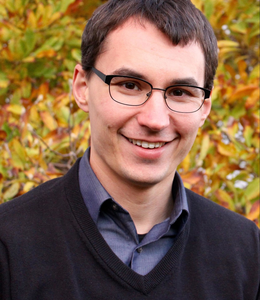
Benjamin Peherstorfer
Assistant Professor
University of Wisconsin-Madison
https://pehersto.engr.wisc.edu
Education
PhD (2013), Computer Science, Technical University of Munich
Postdoctoral Associate (2014-2016), Massachusetts Institute of Technology
DiaMonD Research
Multi-fidelity uncertainty quantification, data-driven model reduction
DiaMonD Collaborations
Cui (Monash), Gunzburger (FSU), Marzouk (MIT), Petra (UC Merced), Willcox (MIT)
About
Benjamin Peherstorfer is assistant professor for Computational Science and Engineering in the Department of Mechanical Engineering at the University of Wisconsin-Madison and is affiliated with the Optimization Group at the Wisconsin Institute for Discovery. Peherstorfer’s research is in high-dimensional problems, computational statistics, and scientific computing, with specific interest in uncertainty propagation and Bayesian inference problems. His current research focuses on multi-level and multi-fidelity methods that combine information from data and physics-based models to make tractable uncertainty quantification with large-scale numerical simulations in computational science and engineering. Additionally, Peherstorfer works on data-driven model reduction techniques that derive localized and dynamically adaptive reduced models to efficiently predict the behavior of systems with complex nonlinear structures such as reacting flows and action potentials in neurons.
Impact of DiaMonD
Peherstorfer was Postdoctoral Associate with Willcox at MIT and partially supported by DiaMonD. His research contributions in uncertainty quantification are the result of close collaborations with the DiaMonD PIs and their groups. Collaborations with Gunzburger (FSU) and his group led to the multi-fidelity Monte Carlo method that combines high-fidelity models with general surrogate models to provide efficient and mathematically rigorous uncertainty propagation in large-scale numerical simulations. Collaboration with Marzouk (MIT) and other DiaMonD team members led to a multi-fidelity method for rare event simulation. Additionally, the large number of young researchers in the DiaMonD team and DiaMonD’s broad cross-cutting themes were a unique opportunity for Peherstorfer to establish long-term research collaborations with fellow young researchers, far beyond the lifetime of their DiaMonD support. Peherstorfer is currently working on model reduction for Bayesian inference with Tiangang Cui (former MIT, now Monash University) and Noemi Petra (former UT Austin, now UC Merced), who were supported by DiaMonD and have now moved on to start their own research groups too.
